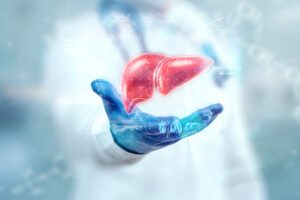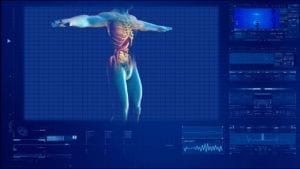Primary Sclerosing Cholangitis (PSC)
What is primary sclerosing cholangitis (PSC)?
Primary sclerosing cholangitis (PSC) is a chronic disease that causes damage to the bile ducts. Patients with PSC develop blockage of the bile ducts due to inflammation and scarring. This blockage causes bile, a digestive fluid that’s transported from the liver through the bile duct to the gallbladder and then small intestine to aid in necessary digestion of food and vitamins, to become trapped in the liver. Accumulation of bile leads to damage of the cells of the liver. The resulting liver damage leads to fibrosis, cirrhosis, and liver failure.
This disease is more common in men. It is estimated 70 percent of the patients are male.
What are the symptoms of PSC?
Early symptoms of PSC include:
- Fatigue
- Itching
Advanced disease symptoms include:
- Right upper abdominal pain
- Fever
- Enlarged liver
- Jaundice
- Bile duct infection
- Liver failure
What causes PSC?
The cause of PSC is unknown. PSC is thought to be a reaction to a viral or bacterial infection, but other suspected causes are attributed to exposure to some type of toxin or a problem with the autoimmune system. It is estimated that 75 percent of patients with PSC have some type of inflammatory bowel disease.
Are there treatment options for PSC?
There is no known cure for PSC. Treatments include:
- Medication for itching
- Vitamin and dietary supplements
- Antibiotics for infections
- Bile duct surgery
- Liver transplant
Patients that do receive a liver transplant have an 80 percent survival rate of two years or more. It’s important to talk with your doctor about the risks and benefits of each treatment option. People with mild forms of the disease may not need treatment immediately, but in more severe cases, emergency medical care is necessary.
Where can I find more information about primary sclerosing cholangitis (PSC)?
Primary Sclerosing Cholangitis (PSC) Articles

Mirum Pharmaceuticals: Results Available from PBC and PSC Studies on Volixibat

Phase 2b Clinical Study Begins to Evaluate Bexotegrast for IPF


Phase 1 Trial for Primary Biliary Cholangitis Therapy Produces Promising Results

Positive Topline Data Available on A3907 for Cholestatic Liver Diseases

Patient Story: PSC and Autoimmune Hepatitis From a Mallorca Vacation





